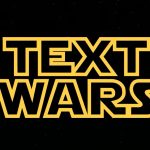In the oral culture, Ong (1982), highlighted that there were no how-to manuals so trades were learned by apprenticeship and learning or knowledge was acquired through close and communal relationships. Teachers in an oral culture would need to transmit information through stories and repetition. Teachers in oral cultures would have been experts in the knowledge that they were teaching to others. The knower directly teaches the learner.
Ong highlights that writing technology enables the learner to be separated from the learning. Teachers in this context become facilitators and do not necessarily need to be the expert. Until recently, with the internet, teachers or school boards were able to control and strictly curate the content being taught. The curated content would be relevant and stable for years or decades.
With the internet and evolving technology, it is much easier to access current and relevant content. In the radio broadcast From Papyrus to Cyberspace, Engell and O’Donnell discuss the concern of reliable information versus trash on the internet. They acknowledged that it would be naïve to think that trash can be controlled. The emphasis instead is placed on being able to discern valuable content from unreliable content. Fostering this skill of discernment will be one of the most important objectives of teachers in the decades to come. As Engell and O’Donnell present, we will need citizens who understand their values and make choices accordingly. Since information can be referenced from anywhere at any time, teaching critical thinking skills will be more important than transmitting information. Teaching will thus need to focus more on the nurturing and development perspectives in the years to come.
References
Engell, J. (Presenter) & O’Donnell, J. (Presenter). (1999). From Papyrus to Cyberspace [radio broadcast]. Retrieved from https://canvas.ubc.ca/courses/4290/files/609973/preview
Ong, W. (1982). Orality and literacy: The technologizing of the word. London: Methuen
References
Engell, J. (Presenter) & O’Donnell, J. (Presenter). (1999). From Papyrus to Cyberspace [radio broadcast]. Retrieved from https://canvas.ubc.ca/courses/4290/files/609973/preview
Ong, W. (1982). Orality and literacy: The technologizing of the word. London: Methuen



Anonymous
June 5, 2018 — 8:48 pm
Hi Alicia
Great point on the value of an activated learning experience that is not based on strictly instructionist methods. I was an apprentice in a few different trades through the years before and during my teaching career. The aspect of this teaching and learning model that appealed to me was the hands-on activity, being able to do what was shown. The visual coupled with the oral instructions and the immediate reinforcement of doing alongside a more knowledgeable other was so much more effective than just reading or watching a video.
I am a technology teacher so I may be biased but my experience in the trades illustrated to me how effective the use of situated learning can be. I teach what would be considered a traditional subject, cabinet making, as well as what would be considered a relatively new area, robotics. The situated learning model has proven how a constructivist approach can be used for quite diverse learner clientele. While there is a theoretical component that involves the written word, we base these type of courses around the project and as the student progresses through their levels, they construct more and more of their learning as they gain knowledge and independence. The students take these type of classes especially for the hands-on philosophy they encourage. The use of in-situ demonstrations emphasize the oral mode of communicating the lesson. Papert and Harel (1991) say it best:
“telling children how scientists do science does not necessarily lead to far-
reaching change in how children do science; indeed, it cannot, as long as
the school curriculum is based on verbally-expressed formal knowledge.”
(Papert & Harel. 1991. p.11).
Papert also speaks to the importance of the learner creating a artefact that has public value, be it perceived or actual, at the nuclear or community level. One does not get this in a pure instructionist environment that is steered almost exclusively by the written word (texts).
In the classes I teach, I consider myself a facilitator. My role is to guide, moderator, and be a resource when needed. This role has shifted greatly from when I first taught in the early 1990s. If a learner is constructing their own knowledge, they are learning how to process information and create strategies they will be able to use across disciplines and throughout life. This is almost a more desired result than the subject-specific knowledge they will attain. In my robotics classes, I left behind the idea of using a textbook over 15 years ago. As soon as we had internet connectivity, we were able to access information that is up to date. Rather than working from a paper-based source that is obsolete before we could have it shipped to the school, we get information directly from manufacturers on the devices we work with. As you mention, having a student sift through sources and develop filtering skills while doing so is very important, especially in our rapidly changing world.
Reference:
Papert, Seymour, and Idit Harel. “Situating Constructionism.” Professor Seymour Papert, http://www.papert.org/articles/SituatingConstructionism.html. The essay is the first chapter in Seymour Papert and Idit Harel’s book Constructionism (Ablex Publishing Corporation, 1991).
Alicia Lok-Malek
June 8, 2018 — 5:29 pm
Thank you for sharing your lived-experience. As I am not a teacher as a career, your real life examples helped solidify my thinking here.
joanna cassie
June 6, 2018 — 2:37 pm
Hi Alicia
I think you have hit the nail on the head with the term “skill of discernment”. We have only to look south to see the effects of having none at all. I think that the problem might end up being trying to define what constitutes discernment in an age where everything seems to have equal value. If you have ever tried to debate with a know-it-all who hasn’t actually taken the time to read what exists on a topic, you’ll know the frustration of trying to convey the importance of having done research and critical thinking prior to forming an interesting and worthy opinion. Opinions abound, and those of us with well-researched ones are tired of hearing those that are unfounded. But how do you convey the importance of something like discernment when it has no value to an individual but would have great value to society, in society in which the individual is valued over the society?
As Grafton mentions in “Future Reading: Digitization and its discontents” we are far from the first to deal with trying to organize large amounts of information. Individuals such as Eusebius and Bussi entrepreneurially tried to curate content in different ways: the former by creating a helpful guide, the latter by putting his own opinion into everything. Eusebius was successful in his time, Bussi not so much. I think there is a key here that discernment needs to offer something of transparent value to the society, that individuals can use to further their own learning.
With all the information at our fingertips, how can one still justify baseless opinion as valid? Well, I think it comes down to the ability to self-market. And I think the reason for that is that because we have been steeped in capitalism for which the skill of selling ‘trumps’ the skill of critical thinking. I am hoping beyond hope that the digital natives, with their open access philosophy, will be the ones to usher in the new “era of discernment”. It looks hopeful through the lens of transparency, accountability and peer review. This way perhaps the cream will rise to the top once again.
Reference:
Grafton, A. (2007). Future Reading: Digitization and its discontents. The New Yorker. Retrieved from https://www.newyorker.com/magazine/2007/11/05/future-reading
Alicia Lok-Malek
June 8, 2018 — 5:39 pm
Hi Joanna, the entirety of your post really resonated with me. Not only are we living in an age where the individual is often perceived to have more importance or rights than society, there is even a sense that some individuals do not even realize that we are all interconnected and individuals live within a society!
Unfortunately, it does appear that the skill of selling does trump thinking (never mind critical thinking).
Another thing that concerns me in this theme is the obsession with quick answers and quick solutions. The fact that information is readily available doesn’t mean insightful or meaningful answers are readily available. The richness of knowledge is proportionately related to the effort one invests in seeking out and discerning the wheat from the chaff.
natallia kuzmich
June 8, 2018 — 10:17 pm
Thanks for your post, Alicia! Lots of interesting ideas!
I think for me, as a LINC (Language Instruction for Newcomers to Canada) instructor, teaching newcomers to Canada critical thinking skills is the most challenging part of my job. More and more students I am teaching now come from ‘orality’ world and to tell the truth sometimes some things just blow my mind…
I feel very often I am ‘stuck’ with the ultimate goal of building student’s comprehension, writing skills, and overall skills in communication while critical thinking skills are sometimes left behind.
On the other hand I was really inspired by some innovative approaches to teaching literacy students (as I have been teaching over 25 years, but not literacy students..).
I am really excited that some of the concepts, motivation, strategies and approaches are being reviewed to meet the demands and expectations of the literacy learners.
Literacy policies and different strategies and approaches to adult literacy programs are critically analyzed, examining what works in differing contexts.
Lind, A. (2008). Literacy for all: Making a difference. Unesco.
sara segovia rocha
June 9, 2018 — 12:52 am
Hi Alicia,
I liked how your articulated the relevance of writing technologies in teaching practices that also have been changing. Now, that we have access to much more digital information, we require skills that differ to those that we needed before (those related to rote learning and memorizing information), therefore, as you said: “teachers in this context become facilitators and do not necessarily need to be experts”. Then, the roles in teaching are trying to approach student centered learning pedagogies that focus on developing skills and practices that enable lifelong learning and independent problem-solving.
I also agree with the point you made about the gain of having easier access to relevant content from the internet and learning technologies, and that also faces the concern about building core skills that enable students to develop active inquiry and critical thinking. These skills can help students to discern valuable content from unreliable, or to effectively participate in our media-saturated world. I believe part of these skills belong to what digital media literacy education is promoting. Media literacy focuses “on teaching youth to be critically engaged consumers of media,” while digital literacy focuses on enabling students to “participate in digital media in wise, safe, and ethical ways” (MediaSmarts, 2018, The intersection of digital and media literacy).
In the evolving roles of teaching is important to considerate the implementation of Media Literacy Education in the curriculum and in educational practices among students and teachers, that also requires a paradigm shift from teachers as all-knowing instructors to facilitators who guide students in a shared construction of knowledge.
Reference:
MediaSmarts. The intersection of digital and media literacy. (2018, February 8). Retrieved from http://mediasmarts.ca/digital-media-literacy/general-information/digital-media-literacy-fundamentals/intersection-digital-media-literacy